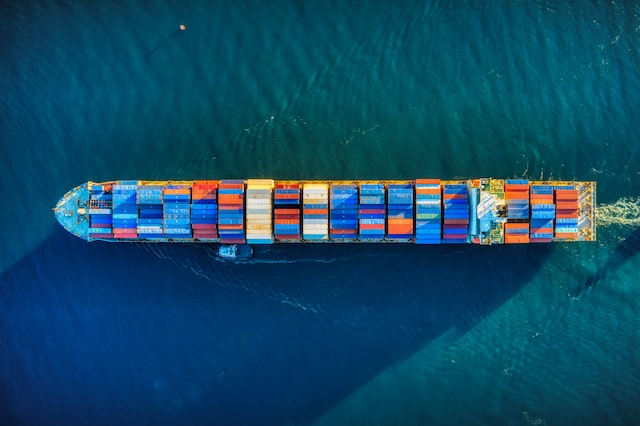The shipping industry is essential to global trade, and as technology advances, so do the capabilities of ships. Artificial intelligence (AI) is playing a significant role in revolutionizing the industry, with autonomous ships being the most prominent application. Autonomous ships are vessels that operate without a human crew onboard and instead rely on AI software to navigate, monitor and control various ship functions.
This article will explore the role of AI software in the shipping industry, specifically how it is used in autonomous ships, challenges faced by autonomous ships, examples of currently operating autonomous ships, the future of autonomous ships, and their potential impact on the industry.
How AI software is used in autonomous ships:
Autonomous ships use a combination of sensors and data analysis to operate without human intervention.
These ships rely on cameras, radar, and sonar sensors to detect obstacles and navigate safely through the water.
AI software processes the data from these sensors to determine the ship’s optimal path, speed, and other factors that affect navigation.
The integration of AI software with shipping systems allows for real-time monitoring of ship conditions, cargo, and environmental factors that may affect the ship’s performance.
The benefits of using AI software in autonomous ships include increased safety, reduced human error, improved efficiency, and reduced costs.
Challenges faced by autonomous ships:
Despite the many advantages of using autonomous ships, several challenges must be overcome before widespread adoption can occur.
Legal and regulatory challenges are the most significant hurdle, as the current laws and regulations are not designed to accommodate fully autonomous ships.
Cybersecurity risks are another challenge, as these ships rely heavily on digital systems that are vulnerable to cyber-attacks. Public perception and trust are also challenges, as many people may be hesitant to trust autonomous ships without a human crew onboard.

Examples of autonomous ships currently in use:
There are several examples of autonomous ships currently in operation. Yara Birkeland is a container ship designed to transport fertilizer from a production facility to a port in Norway. It operates autonomously and is expected to begin commercial operations in 2022.
The Mayflower Autonomous Ship is a research vessel that explores the ocean and collects data on marine life, ocean conditions, and climate change.
It completed its first voyage across the Atlantic Ocean in 2020. Oceanbird is a wind-powered car carrier that uses AI software to optimize its sails and reduce carbon emissions.
Future of autonomous ships:
The potential benefits of autonomous ships for the shipping industry are enormous.
AI software can improve safety, reduce costs, and increase efficiency, leading to more reliable and cost-effective shipping.
Emerging trends in the use of AI software in shipping include the development of autonomous drones for last-mile deliveries and the integration of blockchain technology for improved tracking and transparency.
However, challenges must be overcome for widespread adoption to occur, including legal and regulatory issues, cybersecurity risks, and public trust.
Conclusion:
In conclusion, AI software is playing a significant role in revolutionizing the shipping industry, with autonomous ships being the most prominent application.
These ships use a combination of sensors and data analysis to operate without human intervention, resulting in increased safety, reduced human error, improved efficiency, and reduced costs.
However, challenges must be overcome before widespread adoption can occur, including legal and regulatory issues, cybersecurity risks, and public trust.
The potential benefits of autonomous ships for the shipping industry are enormous, leading to more reliable and cost-effective shipping. As technology advances, it will be interesting to see how the role of AI software in shipping evolves and how it will impact the future of the industry.


